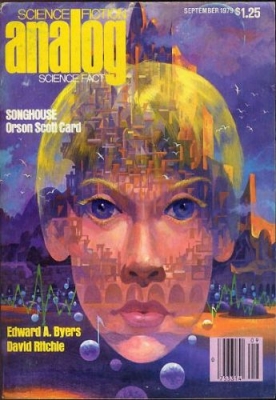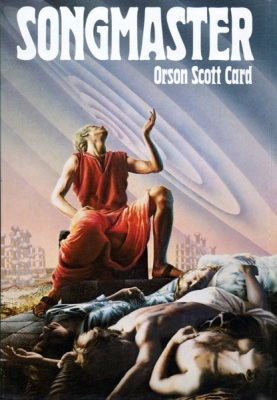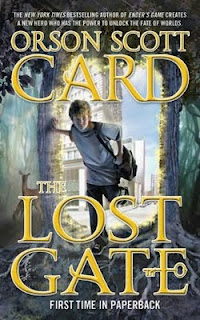The Golden Age of Science Fiction: “Songhouse,” by Orson Scott Card
Analog Award was launched in 1979 for works published in the magazine in the preceding year. The award for Best Novelette has been given every year. The first award, presented in 1979, was presented to “Fireship” by Joan D. Vinge, although Orson Scott Card’s “Mikal’s Songbird” was also up for the award. In 1980, Card won the award for the sequel to “Mikal’s Songbird,” “Songhouse,” which appeared in the September, 1979 issue.
“Songhouse” related the story of a young boy over several years, although the passage of time is vague, as he is being trained in the Songhouse on Tew. Ansset Originally came to the Songhouse as an orphan, although the story does mention that he was a kidnap victim, a background feature which is mostly ignored within the confines of this specific novella. The Songhouse trains singers, who use songs, melodies, and harmonies to communicate on a variety of levels. Ansset is early on pegged to be trained for the highest honor of the house, the position of Songbird, and then to be given over to Mikal, the benevolent dictator of the galaxy.


 The Lost Gate
The Lost Gate  Keeper of Dreams
Keeper of Dreams  The Authorized Ender Companion
The Authorized Ender Companion